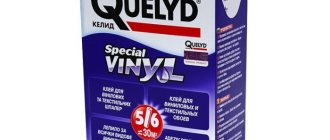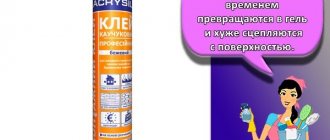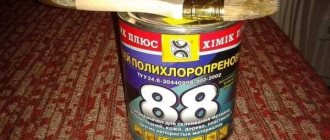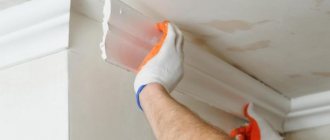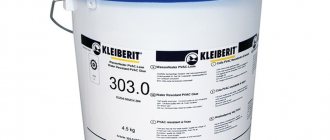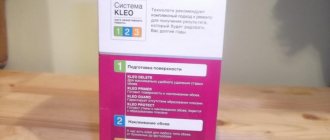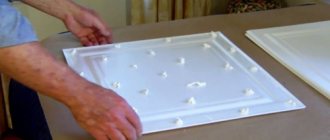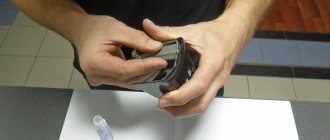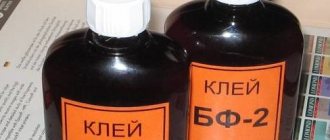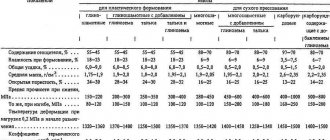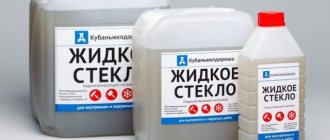What glues Titan
Titan Wild cyanoacrylate adhesive first went on sale in 1992. It is used in repair and construction for gluing different surfaces, which is why it received the title of universal. You can combine materials with the same or different textures.
Titanium glue will reliably connect the following materials:
- plastic;
- ceramic tiles;
- suitable for ceiling tiles;
- PVC;
- aerated concrete blocks, pieces of foam blocks;
- tree;
- in everyday life it is used for crafts and needlework;
- in liquid form it is used as glue for mirrors;
- used for gluing wallpaper, paper, cardboard, foam, linoleum, parquet or carpet.
In addition to wood, polystyrene, concrete, floor coverings, the product glues plaster, leather, polystyrene foam, and porcelain stoneware.
- To lay tile blocks and porcelain stoneware, you need to choose tile adhesive.
- Assembly adhesive is used when installing plastic windows.
- Liquid nails or a universal product can be used to secure mirrors, cabinets, and repair any other household items.
- Waterproof Titanium is used for sealing joints in the bathroom, kitchen, and when processing seams.
The universal composition of the adhesive makes it suitable for use both inside and outside the building.
Advantages and disadvantages
First, let's look at the advantages of liquid nail compositions.
- Spacious and easy to use.
- Excellent adhesion to a variety of materials.
- Connection reliability. The layer can easily carry loads of up to 80 kilograms per square centimeter.
- The product is not susceptible to rust formation.
- When working with construction adhesive, dust and dirt do not form. There is also no noise.
- The composition sets quickly, literally in seconds.
- Liquid nails can be used on surfaces that have defects. The product greatly simplifies the process of laying material on curved bases.
- Unlike standard fasteners, glue maintains the integrity of the surface without destroying it.
- The compositions offered by modern manufacturers are safe for health due to the non-toxicity of the elements.
- A high-quality product is not afraid of increased moisture. Some compounds can withstand low temperatures.
- Excellent fire resistance.
- Favorable expense.
Experts assure that the product has no significant shortcomings. Except that some compounds have a sharp and unpleasant odor.
Properties and technical specifications
Properties depend on the components included. Universal transparent adhesive Titan has the following characteristics.
| Characteristic | Meaning |
| Layer thickness | Up to 4 mm |
| Weight of product per 1 m2 | 4.5 kg |
| Force required to break under transverse/longitudinal load | 600/400 N |
| Heat resistance | Withstands temperatures up to +140°C |
When the seam dries, it can withstand strong mechanical stress. After crystallization, it does not become brittle and does not delaminate. The composition of the glue allows it to be used in rooms with any level of humidity. Since the toxicity of the product is minimal, it is safe, but you still need to use it in a well-ventilated area.
Most varieties of Titan look like PVA, but there are also clear, colorless mixtures.
Titanium mounting agent is an analogue of polyurethane foam. Has the same appearance. Unlike foam, glue does not have secondary expansion. That is, polyurethane foam shrinks after the initial expansion, while Titan expands for the first time, but does not shrink further.
Titanium dries in an hour, but the maximum strength of the seam is achieved only after a day.
For reliable bonding of porous surfaces, the composition must be applied in two layers. A completely dry seam is not exposed to sunlight or temperature changes. After complete crystallization, the seam remains elastic, waterproof, and strong.
Price of Titan glue and reviews about it
The cost of "Titan" depends on the specific type of product. Typically, universal adhesives are sold at a price of 100-180 rubles per 0.5 liter; in small packaging (25 ml) the products cost 50-70. Adhesive foams have different prices depending on volume and type (300-800 rubles). “Liquid nails” cost 100-450 rubles, the most expensive are those that come with a glue gun.
According to reviews, Titan adhesives are very resistant to moisture. You can literally pour water on the seam, it will not deteriorate. The product is easy to clean from hands and is very convenient to apply to products. The adhesive is ideal for minor and major repairs. Most users recommend “Titan” for purchase; it raises virtually no complaints!
Varieties
A universal composition is used everywhere. Besides it, there are other modifications, for example:
- sealant Titan;
- glue-mastic;
- Tytan Professional PVA D3 for wood and other analogues.
Universal glue
Titan SM universal glue is used to connect PVC, ceramics, leather, wood, carpet, parquet, and other floor surfaces. It adheres well to polystyrene foam, so it is often used as a ceiling adhesive for attaching ceiling tiles. The mixture should be applied in a thin dotted line to the back of the tile, then wait a few minutes and gently press it to the ceiling. It is available in tubes with a thin spout, so it is convenient to apply even a very thin layer.
The universal composition is colorless, so the seam becomes barely noticeable after drying. It does not allow moisture to pass through and does not lose elasticity either at low temperatures up to -30°C or at high temperatures up to +60°C. The crystallized seam is not susceptible to direct sunlight.
- It is necessary to first clean and level the surface.
- Apply the product to both surfaces in a thin layer.
- Then you need to wait until the composition dries and connect both parts.
- The glued surfaces must be pressed tightly against each other for 5-10 seconds.
Complete hardening of the seam occurs after 40 minutes, its maximum strength is achieved after 24 hours.
The universal epoxy adhesive Epoxy Titan is popular. This is a two-component adhesive that consists of a resin base and an amine type hardener. Bonds metal surfaces, plastic, wood, porcelain, concrete, ceramics, and other materials. Used as a sealant, as a leveling mastic, to seal cracks, pores, and holes. After crystallization, the seam retains its properties at temperatures from -40 to +100°C, it does not conduct electricity, is not susceptible to aggressive environments, and is resistant to vibrations and loads.
Adhesive foam Titan
Adhesive foam “Titanium 60 seconds” works on the principle of polyurethane foam. When exposed to air, its composition polymerizes in no more than 60 seconds. Upon contact with moisture contained in the atmosphere, CO2 is released, which swells the polymer. This is how foaming occurs.
It can be used for installing windows, doors, wall panels, sand-lime bricks, gas silicate blocks, and ceramic tiles.
Adhesive foam increases the adhesive properties of porous substrates. It is used sparingly and seals cracks and potholes in surfaces. Maximum adhesion to the surface after 2 hours. Operating temperature should not be lower than -10°C.
Glue mastic
Titanium mastic is used for gluing ceiling skirting boards, slabs, decorative elements, foam plastic, polyurethane, and expanded polystyrene. The mixture adheres well to concrete, cement, gypsum, wood, and plywood substrates. Mastic can be used to glue fiberboard. Styrofoam mastic can be used to level bases, seal cracks and defects before installing polyurethane objects.
The hardened mastic is resistant to low temperatures and UV light. It contains no solvents or toxins, which means it is safe.
Before applying the composition, the surface must be cleaned and degreased. The mastic is applied with a spatula at an operating temperature of at least +8°C. The initial setting of the mixture occurs after 15-20 s. During the first 10 seconds, the position of the bonded surfaces can still be adjusted. The seam dries completely in 12 hours.
Liquid nails Titan
Tytan Classic Fix assembly adhesive is available in tubes of 0.2 and 0.31 liters, equipped with a mounting gun. The mixture has a white color and a thick paste-like consistency, which, when hardened, replaces nails or screws.
Classic Fix is suitable for gluing metal, PVC, wood, cork, and plaster surfaces. They are used to glue tiles, bricks, polystyrene foam, polyurethane, and cement. Polyethylene, polypropylene, wet surfaces cannot be glued. It must be applied in a thick layer to the surface to be treated. If excess appears, remove it with a sponge. The initial contraction will occur a quarter of an hour after application. The seam will be super strong, resistant even to very low temperatures.
Powder
The product in powder form is suitable for wallpapering. The composition has disinfecting properties. It prevents the development of mold and mildew. The initial setting of the adhesive seam occurs after 5-10 minutes, which allows you to adjust the location of the wallpaper directly on the wall. You can use vinyl, non-woven and paper wallpapers on powder Titanium.
Before use, the powder must be diluted with water until a homogeneous mass is formed.
Afterwards, the composition can be applied to the wall if non-woven wallpaper is being glued, or to the back side of the wallpaper when gluing other types of wallpaper. The paste should be applied from the center of the canvas to its edges. After application, it needs to be given 5-10 minutes to set on the surface. When diluted, the composition can be stored for a maximum of 1 month.
Glue "Titan"
One of the most popular and used adhesives during repair or construction. Suitable for finishing ceilings, but can also be used for wallpapering, installing windows, and priming walls.
One of the most popular and used adhesives during repair or construction.
Description and features
Ambient temperature does not affect the quality of gluing when using Titan glue. The substance is very elastic. In addition, Tytan glue is not susceptible to direct exposure to sunlight. After hardening, it remains strong and does not delaminate. There are no harmful substances in the composition.
List of properties:
- Can be used for renovation both indoors and outdoors;
- Used when it is necessary to glue any materials;
- To obtain a high-quality result, a small amount of titanium glue is required;
- Leaves no traces after use;
- Used immediately after purchase;
- Is environmentally friendly;
- Does not depend on external temperature.
Russian titanium glue is used for gluing different materials, does not damage them and is completely harmless. Changes in temperature, moisture and ultraviolet radiation do not affect the quality of gluing. The seam remaining after gluing is not afraid of temperature changes, is elastic and plastic.
Titanium glue is used for gluing different materials; it does not damage them and is completely harmless.
The features of Wild Titan glue were discussed above. You should also become familiar with the advantages and disadvantages.
Pros:
- Ease and convenience of use. Most construction workers recommend the product. The packaging containing titan wild glue is small in size, and to use you just need to remove the cap and apply the product to the surface;
- Immunity to temperature changes. The heat resistance of clear titanium adhesive allows it to cope with high and low temperatures. If the adhesive seam is exposed to direct sunlight, this will not lead to destruction of the adhesive layer;
- Harmlessness. Only safe components are used in production;
- Bonding speed and transparency. The liquid holds the materials together within 30 seconds, and after hardening the seam is not visible;
- Resistance to humidity. The glue can be used not only in dry rooms, but also in damp ones. The liquid does not lose its properties despite high humidity;
- Corrosion resistance. The product is used when gluing metal products, as it prevents rust from appearing.
Among the disadvantages, several features can be noted:
- Unpleasant smell. When using the liquid, it emits a pungent, unpleasant odor;
- Difficult to wash off. If adhesive gets on surfaces that do not need to be glued, you will have to use solvents to get rid of it.
To use, you just need to remove the cap and apply the product to the surface.
What glues and what can be diluted with it
Due to the properties of the glue, it can be used for gluing a large number of materials. Among them are wood, linoleum, paper, ceramics, glass, artificial and natural leather. Expanded polystyrene and polystyrene can also be glued together using this two-component product. You can dilute excessively thick adhesive using medical alcohol. A thinner glue will take longer to dry, but will get into all the small cracks. The product stored in tubes cannot be diluted, since the packaging is sealed. But it does not need to be diluted until the substance’s expiration date has expired.
You can dilute excessively thick adhesive using medical alcohol.
Classification by composition
| View | Description |
| Rubber compound | The entire Titan Professional line is rubber-based. Such mixtures glue wood, chipboard, tiles, plastic skirting boards, and baguettes well. They tolerate temperature changes and heavy loads well. Their seams are strong and elastic. The series includes “liquid metal nails” on which mirror or glass surfaces are attached. Liquid nails "Titanium 601" are also produced on the basis of rubber. They are used for finishing and insulation work, for gluing cornices, panels and sockets. |
| Polyurethane glue | Styro has a polyurethane based composition. They can be used to glue bitumen, mineral wool, thermal insulation boards, and carry out roofing work. Polyurethane compounds have disinfecting properties. Prevents the development of mold and mildew. |
| Acrylic mixture | Titan Express belongs to this type. They can be used to glue stones, trees, ceramic and glass bases. Hardens quickly. Suitable for urgent work. The product “Stucco Decor” is also produced on an acrylic basis, which attaches cork, glass, and any decorative items to the interior. |
| Polymer glue | More often it is recommended to use it for gluing amalgam, alloys, fiberglass, and other materials, when working with which it is important not to damage the surface being glued. The mixture can be used to glue insulation, ceramic tiles, moldings, and used as sealants. It is waterproof and UV resistant. |
How to apply the composition?
To apply liquid nails, you need to use step-by-step instructions.
- The working surface must be washed, dried and, if necessary, degreased.
- There is no need to apply the composition to the entire base. A stripe or dotted line will be enough.
- For greater convenience, a special pistol is used.
- To protect indoor furniture and other items, use film, thick fabric or newspapers.
- Remember that the setting process takes a second, so the work must be done quickly. Afterwards, you need to securely connect the parts and hold them for about two minutes, pressing them tightly against each other.
- The process of complete hardening occurs in about a day. During this time, it is recommended not to load the connected elements.
Instructions for use
The easiest to use is a polyurethane-based composition. It dries quickly and is easy to apply. When working with any adhesive mixtures, it is necessary to ventilate the room.
When using Titan, drafts should not be allowed, as they affect the drying rate of the composition and deteriorate the quality of the adhesion.
- The foundation is being prepared. The surfaces to be pasted are cleaned of dirt and dust. The old falling off coating is removed with a spatula. Holes, cracks, and other defects are covered with plaster or mastic. Metal and plastic surfaces are sanded, degreased, and primed. Next, you need to wait until the surfaces are completely dry.
- If you need to glue complex or large surfaces, then Titanium is applied to both sides. When gluing small bases, the product is applied to one of the surfaces. If tiles are glued, the mixture is applied in the form of a snake. After application, both surfaces are pressed against each other. For better fixation, you need to hold them with your hand for at least 1 minute. The ceiling tiles need to be held in place for the same amount of time. Glued parts and surfaces must be left alone until completely dry.
- The adhesive mastic is applied with a spatula. If the base is small, then the product is applied pointwise. If the surfaces to be bonded are large, the compound must be applied using a continuous method. Liquid nails are applied with a glue gun in the form of waves or stripes. Such compositions can be used on uneven surfaces, with differences and flaws.
If, after gluing, drips and excess mixture appear, they must be removed immediately.
How to dilute Titan glue
If Titanium has thickened, it can be diluted with medical alcohol, alcohol-containing disinfectant liquids or denatured alcohol. Acetone will also work, but in too large quantities it can dissolve the glue.
If acetone is used to thicken the composition, and not to remove stains, then you need to adhere to the mixing ratio of the components. For four parts of thick Titanium you need to take one part of acetone.
This dilution method is very risky, since if the proportions are violated, the strength characteristics of the composition may change.
The powder is diluted with water. No additional solvents are needed. A more liquid consistency of the composition will lead to better penetration into pores and minor surface defects, but the drying period of diluted Titanium is significantly longer.
If thickening occurs in tubes, it is no longer possible to return the normal consistency due to the sealed form of the packaging. Such problems with formulations in tubes occur only after their expiration date.
How and with what you can remove glue
Streaks of even transparent, dried Titanium are very visible in the light, so they must be washed off before the seam has completely hardened. The method by which the composition is wiped off depends on the type of surfaces being glued and on the time since gluing.
- It is necessary to remove glue from porous and soft surfaces, such as polystyrene foam, while it is not yet dry. This can be done with a damp cloth or sponge.
- You can also remove glue from hard and low-porous materials in a dried state, when it can be easily removed by hand. If the product has stuck strongly, you can pry it off with a spatula. This is usually how excess mixture is removed from the ceiling.
If you need to not only scrub, but also clean the surface from traces of glue, it is better to use solvents. Such products are produced by the same companies that produce the adhesive composition itself. At home, you can wash it with organic solvents such as acetone and white spirit. It is removed from clothing when it is completely dry, then pieces easily break off from the fabric and can be removed by hand without outside help.
How and with what you can remove glue
Despite the fact that the glue line after drying is transparent and practically invisible, its streaks on the surface are visible, especially in the light. You need to get rid of them as soon as possible, because once they harden, it will be more difficult to do so. Soft surfaces can be cleaned using a damp cloth as long as the adhesive remains liquid. If the surface is hard, you need to wait until the mixture has completely hardened, then use a spatula to remove all excess.
Solvents such as acetone or white spirit will help in cleaning. They can also be used to remove traces of glue. Solvents can be purchased at the same store where you buy the glue. Manufacturers immediately offer this opportunity.
Solvents such as acetone or white spirit will help in cleaning.
Titan is suitable for repair or construction. The variety of types allows you to choose the one that is needed in a particular case, be it working with the floor, ceiling, walls or windows.
What to do if the glue has thickened
During application, the universal adhesive composition Titan may thicken, which negatively affects its characteristics. In order to return it to its original properties, you can dilute the glue. For these purposes, use one of the types of alcohol:
- Ethyl (medical);
- Salicylic (alcohol solution of salicylic acid);
- Technical (denatured alcohol).
The use of nail polish remover containing acetone and isopropyl alcohol as a solvent is not recommended, since this composition may cause the adhesive to curdle.
Purpose and types
Titanium glue is universal and can be used for different surfaces.
For example, there is Titanium for foam plastic, tile adhesive, for polystyrene foam, and the like. The glue itself is multicomponent. This material has excellent technical characteristics, including resistance to temperature changes, is not afraid of a humid environment, frost-resistant, etc.
Universal titanium adhesive is available in different forms:
- Liquid Nails.
- Glue mastic.
- Universal glue.
Let's consider all its features and properties.
Universal
Mainly used for gluing linoleum, wood, parquet, polyvinyl chloride, polystyrene foam.
The glue itself is in a sealed package, which is squeezed out of it using a special dispenser. Once the material has dried, the seam is practically invisible.
It must be applied to a previously cleaned and prepared surface. Universal Titan dries in about one hour. Tile material is very popular for wall decoration.
Adhesive mastic
Used for gluing materials to a wide variety of surfaces, for example, chipboard, fiberboard, plasterboard, wood, brick, plaster, cement, concrete. Used for special ceiling tiles. Before using it, the composition must be thoroughly mixed.
Liquid Nails
Produced in small cans. The glue is squeezed out using a special construction gun. It is used for a variety of purposes. Operates in different temperature ranges.
Can be used both outside and inside the room. Few things glue as well as this type of Titan glue. So, it is used for gluing wood, PVC, polyurethane, ceramics and even metal outdoors.
Characteristics
Below, we will consider the technical characteristics of transparent Titan glue.
- Does not create any load on the surface being coated.
- Environmentally friendly.
- Heat resistance up to +100°C.
- Minimum seam area.
- Excellent viscosity.
- Has excellent adhesion to various surfaces.
- Versatility.
- Frost resistance.
- A waterproof seam is created.
To perform a particular job, the correct selection of Titan adhesive is necessary. One of the most popular ones is polyurethane. They can be used to glue glass and plastic surfaces. It dries quickly and has good viscosity.
Due to this, it is convenient to use when gluing material to the ceiling. Unlike its analogues, it has a rather pungent odor. Therefore, when working with it, the room should be well ventilated.
Advice! When gluing a particular surface, drafts are not recommended. This may negatively affect the quality of gluing and the drying process of the composition.
It dries very quickly. This eliminates the possibility of the surface peeling off and the material moving to the side. It is best to read the manufacturer's instructions before using it.
This is important, because the recommendations for use should include expanded polystyrene or polystyrene foam; if they are not, then remember, some compositions contain solvents. Their presence will cause deformation and corrosion of the plastic.
Therefore, you can use Titan adhesive for tiles. You can glue ceiling tiles with this composition without much difficulty.
Its use is especially practical if the glue accidentally stains the material being glued. To remove it from the ceiling you need to use a diluted solvent. Using this composition dissolves the glue and even stains and marks are completely removed.
Home use cases
Titan glue is an indispensable assistant in everyday life. In construction and repair, it helps to hold together wood, metal, drywall, plywood, and glass. For household purposes, a combination of paper, plastic and even fabric is often required.
Check out several examples of using all-purpose glue at home and you will learn how to solve your problem. With Titan you will get:
- PVC tiles, ceiling blocks, fiberboard, chipboard, MDF;
- tile;
- natural and decorative stones;
- ceramics;
- carpet;
- moldings, baseboards;
- door frames, double-glazed windows;
- natural and artificial leather;
- polystyrene and polyurethane;
- vinyl, non-woven fabric, wallpaper (paper);
- baguettes;
- mirrors;
- furniture;
- Kids toys;
- shoes;
- mineral wool, bitumen;
- roofing, wall and other coverings;
- decorating interior items, etc.
Any surface (concrete, cement, sand-lime or ceramic brick) is not a problem for Titan
There are dozens of answers to the question of what glues Titan. In addition to its fastening properties, it has proven itself as a filler for voids in walls, in sealing cracks and other defects, and in leveling non-uniform surfaces. Insulation of cornices, rosettes, and panels is achieved using rubber in Titan liquid nails.
Do not apply the mixture to whitewash, polyethylene and polypropylene - gluing will not occur. Wet areas are also contraindicated for treatment (moisture resistance is ensured only after the composition applied to a dry and pre-prepared surface has dried).
Material on topic! Where is phosphoric acid used in everyday life?
Liquid nails Tytan Professional: features and application
When renovating, interior finishing or decorating premises, there is often a need for reliable gluing of materials. A specialized glue – liquid nails – can be an indispensable assistant in this matter. Such compositions appeared on the market relatively recently, but have already gained popularity among builders due to their numerous advantages.
The products of this brand are of high quality and affordable prices.
Types and scope of use
Tytan Professional liquid nails come in several types. Based on their purpose, they are divided into two types.
- Universal. Such compositions are suitable for gluing any materials.
- Special purpose products. Such adhesives can be used for certain types of materials. On the packaging of special-purpose adhesives, the manufacturer indicates information about the purposes for which they are intended. These can be compositions for fastening heavy structures or metal parts, for exterior work, for mirrors, glass, for installing foam panels.
Liquid nails also vary in their composition. Adhesives can be made from rubber or acrylic. The first are polyurethane materials with an unpleasant odor caused by synthetic components. Such products are suitable for gluing heavy materials.
To work with such nails, a respirator and protective gloves are required. It is recommended to use rubber adhesives in well-ventilated areas.
Acrylic (water-based) compositions do not contain toxic substances, due to which they are odorless. Such nails cost less than rubber nails, but they do not have increased strength.
Depending on the composition, liquid nails are used for the installation of window sills, cornices, brick structures, various panels, plasterboard products, glass, aluminum, and solid wood. Glue is not recommended for working with damp wood and for creating aquariums.
